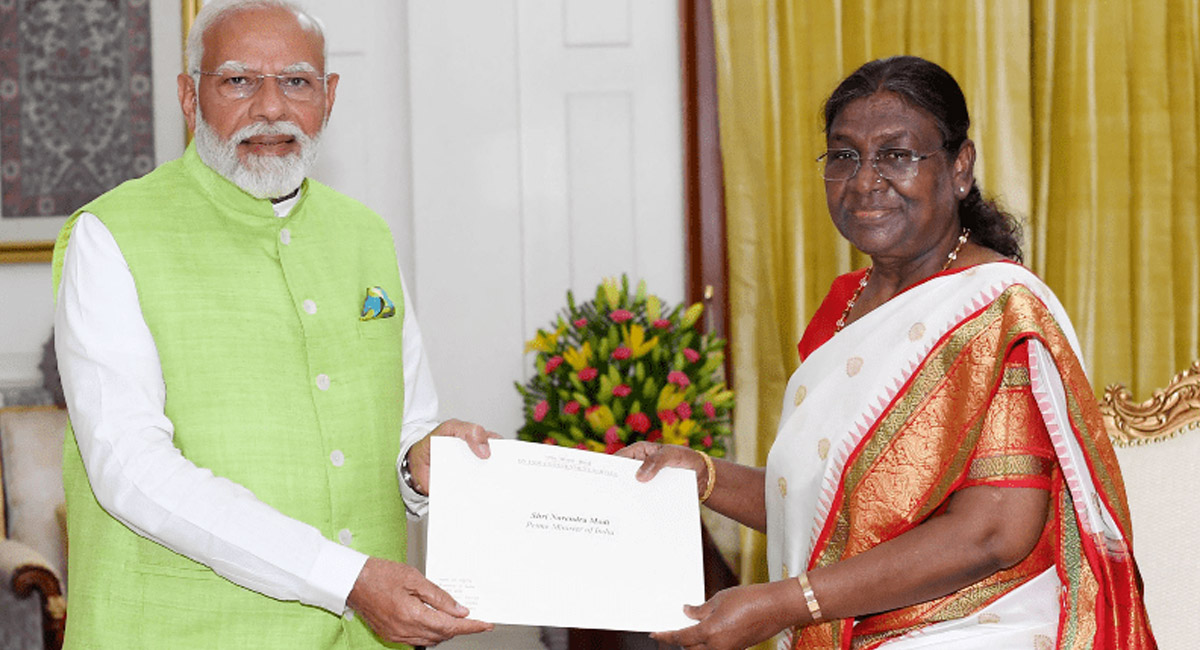As Indian Prime Minister Narendra Modi gears up for his third term, the political arena in India undergoes a notable shift. The recent election results, though not as expected, underscore the dynamism of Indian democracy. Here’s an in-depth analysis of Modi’s journey towards a coalition government, the implications of this shift, and the broader implications for India’s political future.
The Unexpected Coalition: A New Political Landscape
Modi’s Bharatiya Janata Party (BJP), known for its Hindu-nationalist stance, anticipated another sweeping victory. However, the outcome of the six-week election surprised many, as the BJP fell short of a majority, prompting discussions for a coalition government. This unexpected turn led to the formation of the National Democratic Alliance (NDA) coalition, comprising 15 members, with Modi at its helm.
Challenges and Opportunities in Coalition Politics
While coalition governments are not uncommon in India, Modi’s reliance on such a framework marks a significant departure from his previous terms characterized by single-party rule. This shift necessitates adept maneuvering through the complexities of coalition politics, where consensus-building becomes paramount.
The Road Ahead: Governance in a Diverse Nation
Modi’s new tenure demands a nuanced approach towards governance, with consensus-building emerging as a cornerstone. The diverse fabric of Indian society necessitates a balanced strategy that accommodates varied perspectives and interests. As the BJP recalibrates its expansion plans, Modi’s leadership will be tested in fostering unity amidst diversity.
Analysts’ Perspectives: Assessing Modi’s Third Term
Analysts weigh in on the implications of Modi’s reliance on coalition partners. While some view it as an opportunity for greater inclusivity and democratic deliberation, others underscore the challenges of navigating diverse interests. Modi’s leadership style and ability to adapt to this evolving political landscape will shape India’s trajectory in the coming years.
Opposition’s Response: A Shift in Political Dynamics
The resurgence of the Congress party, with a notable increase in parliamentary seats, reflects a shifting political landscape. Critics view this as a vote against Modi’s leadership style and policies, signaling a need for introspection within the BJP. The opposition’s strengthened position underscores the importance of a robust democratic framework in India.
Global Perspectives: Modi’s Stature on the World Stage
Despite domestic challenges, Modi continues to garner international recognition and support. Leaders from across the globe extend congratulations, highlighting the growing stature of India on the world stage. This global endorsement underscores Modi’s role in shaping regional and international dynamics.
Looking Ahead: Modi’s Vision for India
As Modi embarks on his third term, he articulates a vision for a transformative agenda focused on development and progress. Emphasizing continuity and stability, Modi pledges to steer India towards a new chapter of growth and prosperity. His commitment to upholding constitutional values and citizen dignity resonates amidst evolving socio-political dynamics.
Conclusion: Navigating Uncertainty with Resolve
Modi’s journey towards a third term epitomizes the dynamic nature of Indian politics. The shift towards coalition governance signifies both challenges and opportunities for India’s democracy. As Modi prepares to lead India into a new era, the path forward necessitates adept navigation of diverse interests and steadfast commitment to inclusive development.
